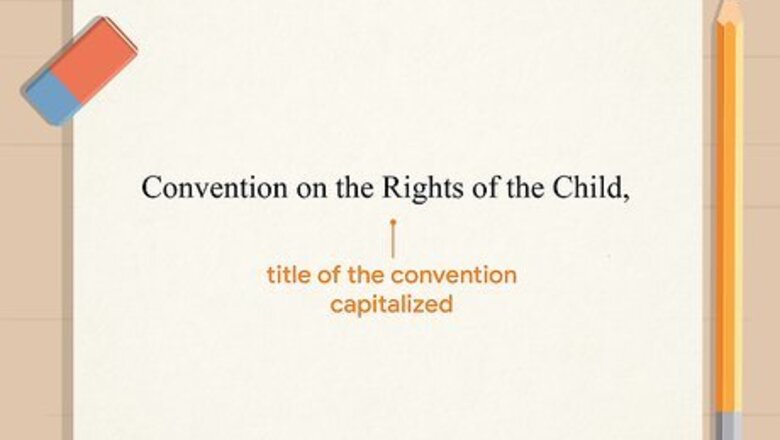
views
X
Research source
As such, it's a common source for research papers dealing with childcare, child psychology, and other topics. If you're writing a paper using the American Psychological Association (APA) citation style, you'll follow the format provided by The Bluebook, a legal citation guide, to cite this source.[2]
X
Research source
Reference List Entry
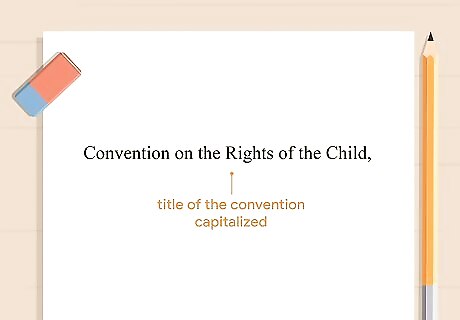
Start your Reference List entry with the title of the convention. Type the full title of the convention. Use title case, capitalizing the first word plus all nouns, pronouns, adjectives, adverbs, and verbs. The words "United Nations" are not normally included at the front in Bluebook style, because the name of the entity is inferred by the name of the official source (included later in your entry). Place a comma after the convention's title. Example: Convention on the Rights of the Child,Tip: Normally, the names of the parties to the convention would follow the title of the convention. However, APA style gives you the option to leave it out, which you should do with the UNCRC, since listing 196 parties would make for an unwieldy Reference List entry.
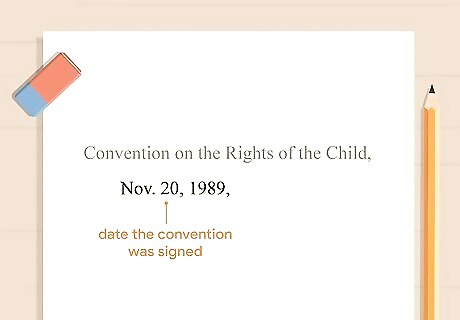
List the date the convention was signed. Type the full date the convention was first signed in month-day-year format. Since the UNCRC was signed in November, abbreviate the name of the month. Place a comma after the year. Example: Convention on the Rights of the Child, Nov. 20, 1989,
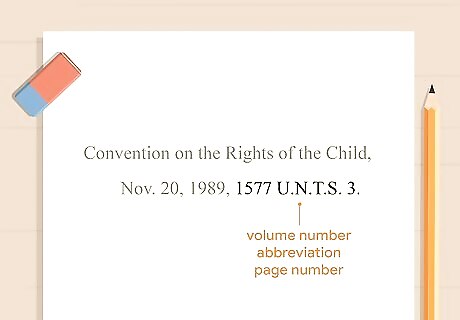
Provide publication information from an official treaty source. The Bluebook requires that you cite to an official source, even if you accessed the text of the convention somewhere else. For UN conventions, the official source is the United Nations Treaty Series, abbreviated "U.N.T.S." Provide the volume number, followed by the abbreviation, then the page number where the convention starts. Place a period at the end of your Reference List entry. Example: Convention on the Rights of the Child, Nov. 20, 1989, 1577 U.N.T.S. 3.
In-Text Citation
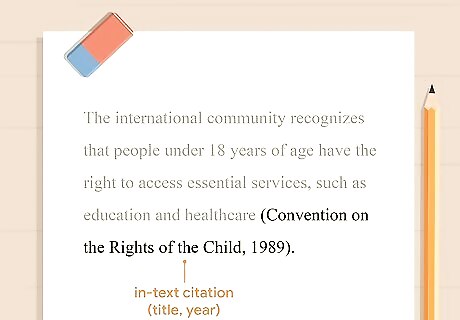
Provide the title and the year in your in-text parenthetical citation. A normal APA in-text citation includes the first element of the Reference List entry and the year of publication. In the case of a treaty or convention, use the year it was first signed. The parenthetical citation goes inside the closing punctuation for the sentence. For example, you might write: The international community recognizes that people under 18 years of age have the right to access essential services, such as education and healthcare (Convention on the Rights of the Child, 1989).
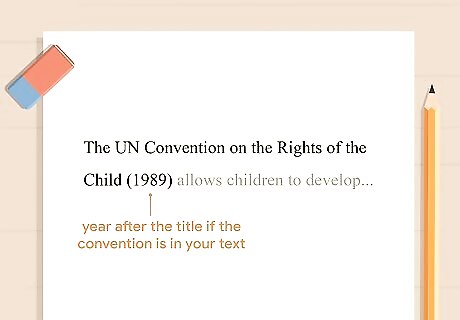
Place the year after the title of the convention in your text. In some situations, it might enhance readability for you to mention the title of the convention directly in your text. A full parenthetical in-text citation isn't necessary at the end of the sentence if you do this. Rather, you place the year in parentheses immediately after the mention of the title. For example, you might write: The UN Convention on the Rights of the Child (1989) allows children to develop their personalities, abilities, and talents in a loving and understanding environment.
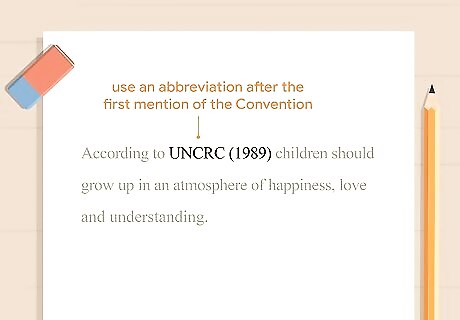
Use an abbreviation after the first mention of the Convention. Because the full title of the convention is so long, it's better to only use the full title once in your paper. Every time it's mentioned afterward, either in your text or in a parenthetical citation, you can use an abbreviation. Typically, you'll include the abbreviation in parentheses immediately after the full title in the first instance. This tells your readers that the abbreviation will be used in the rest of your paper. Accepted abbreviations for the UN Convention on the Rights of the Child include "CRC" or "UNCRC."Tip: Use the abbreviation that best suits the context. For example, if it's clear from your text that you're talking about a UN convention, "CRC" might be appropriate. Otherwise, "UNCRC" might be a better choice.
















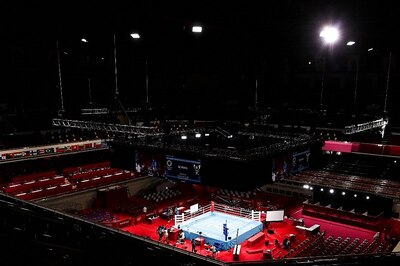

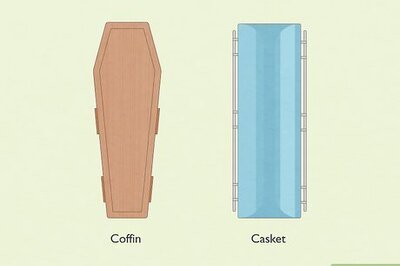

Comments
0 comment